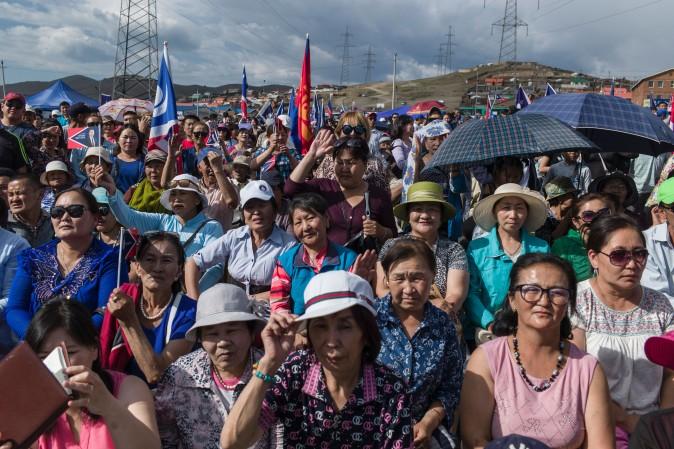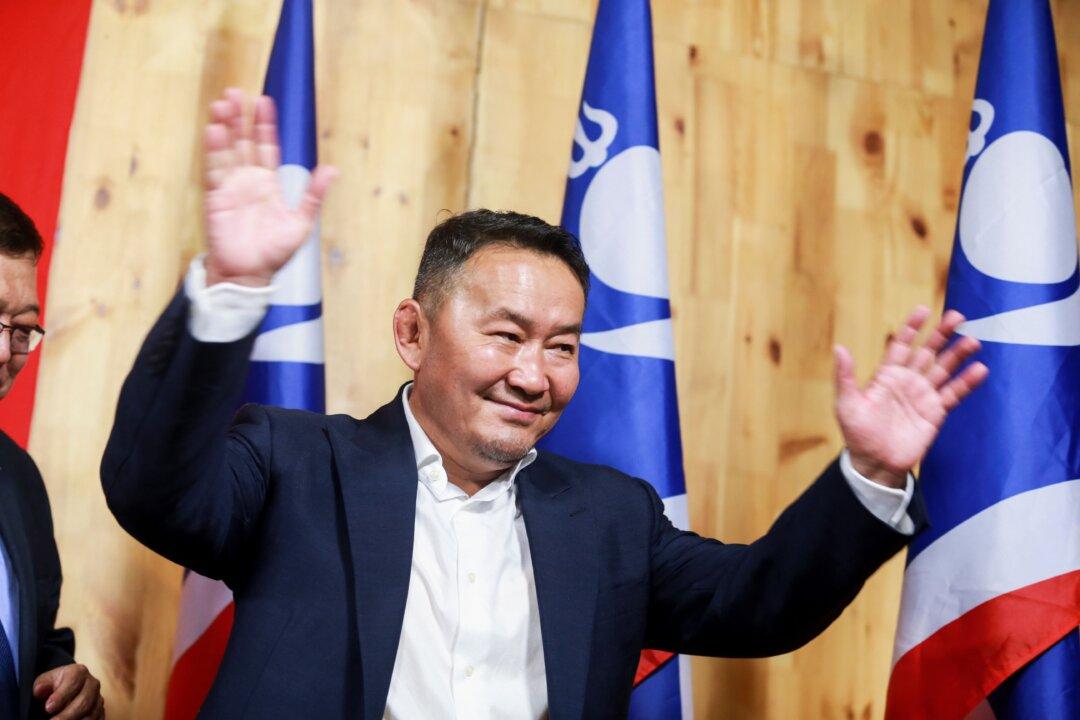A former wrestler was elected president of Mongolia on July 8.
Khaltmaa Battulga, 54, won the run-off election as a candidate for the opposition center-right Democratic Party, garnering 50.6 percent of the vote. A poll on June 26 failed to produce in a clear winner.

Mongolian supporters listen the speech of Mongolian presidential election candidate Battulga Khaltmaa from the Mongolian Democracy Party during a rally in Ulan Bator, on June 23, 2017. Fred Dofour/AFP/Getty Images





